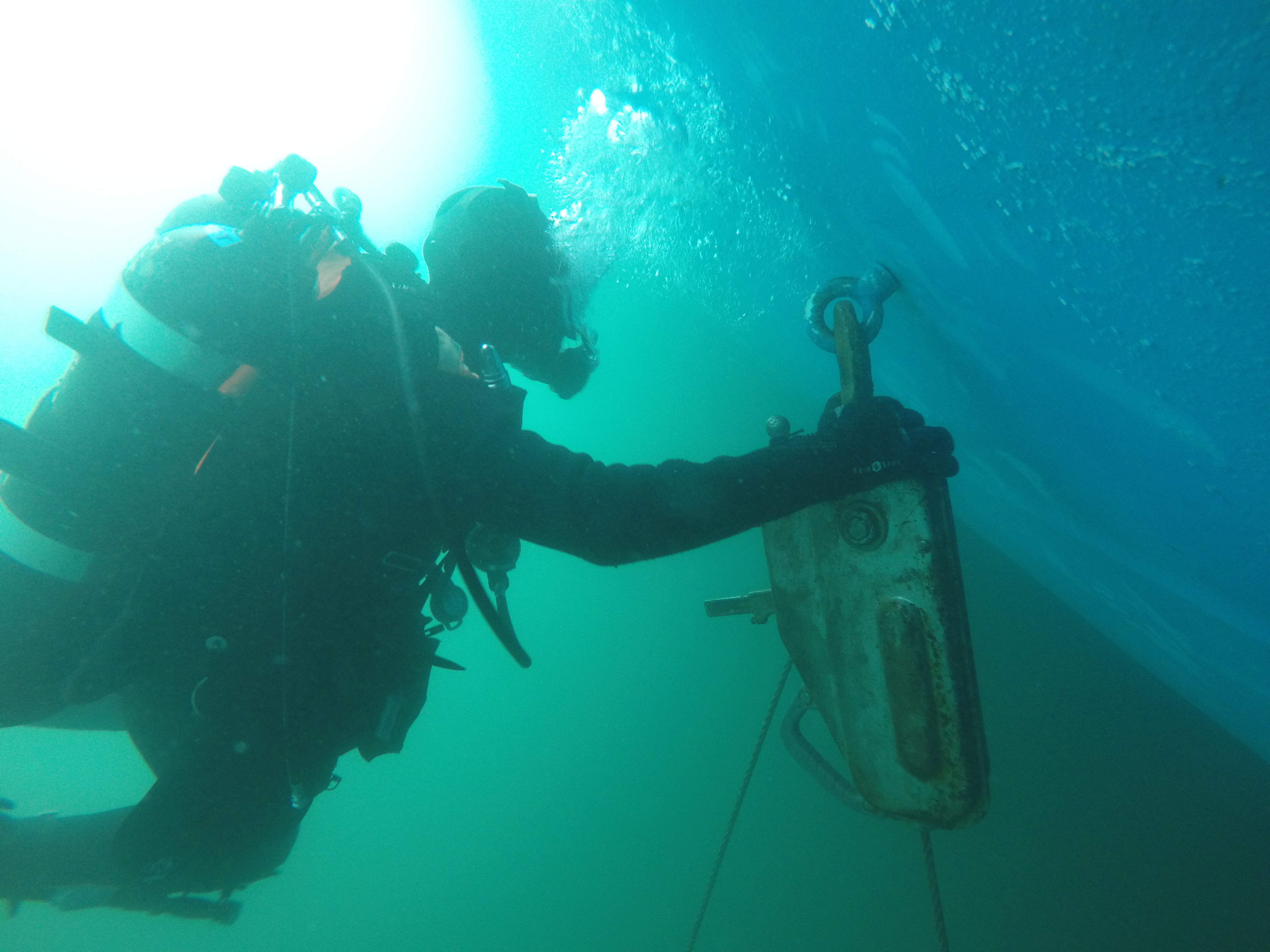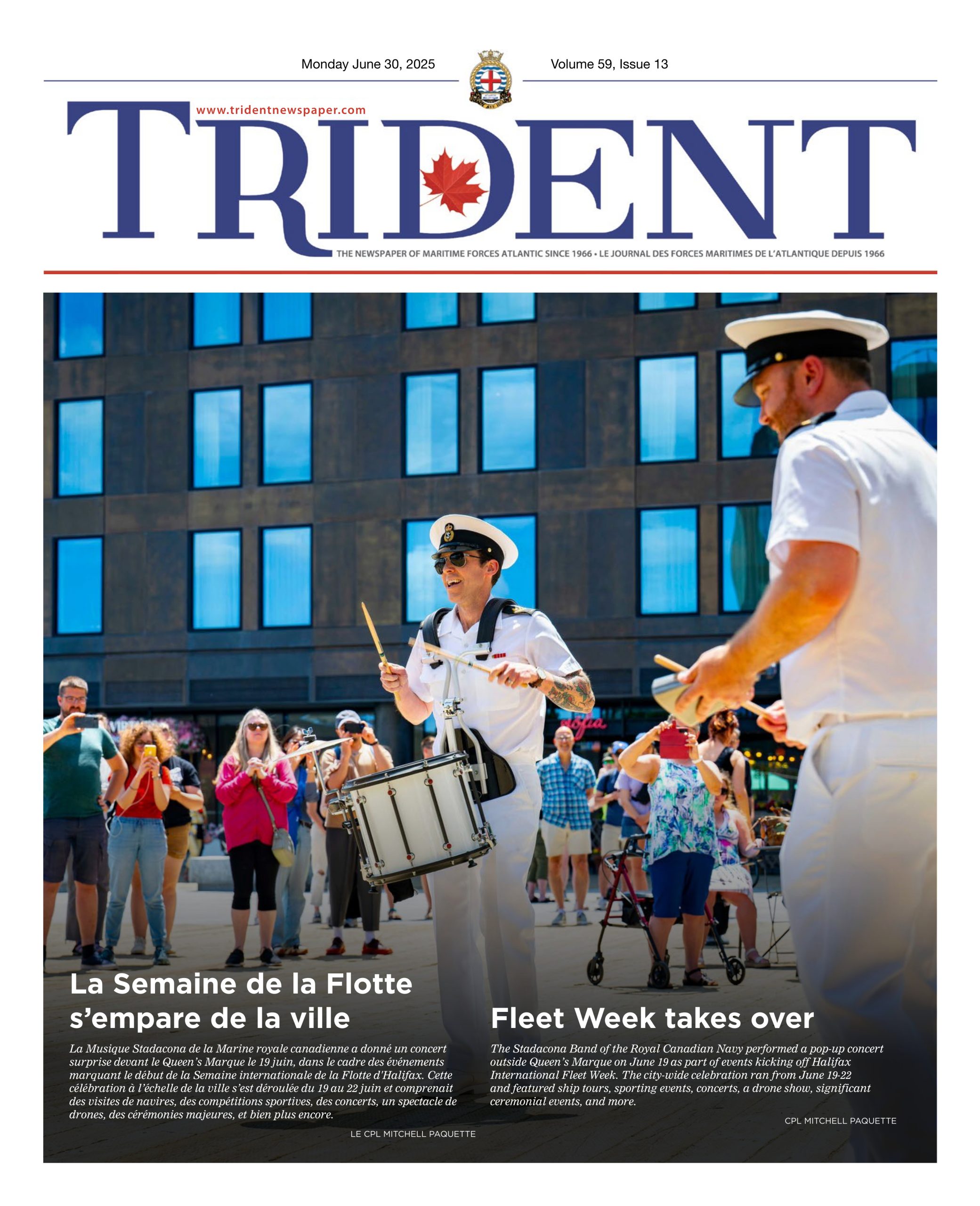
SUBMITTED
By Peter Mallett
The Lookout Staff,
A team of Clearance Divers are heading to Ukraine for a month to share their expertise in diving.
Two divers from each coast’s dive unit, led by Lt(N) Kevin Darling, will travel March 28 to the Black Sea port of Odessa to deliver a ships dive course training program to the Diving School of the Armed Forces of Ukraine.
Lt(N) Darling says Royal Canadian Navy (RCN) divers were selected for the job because they have the knowledge and expertise to help develop and mentor partner nations.
“The RCN is constantly engaged in instruction and the force generation training of all Canadian divers, and this is a great opportunity to collaborate with our Ukrainian partners and share our experience and knowledge in diving. It’s important for the Canadian Armed Forces to provide this training to other NATO [North Atlantic Treaty Organization] partners and help bolster their capabilities and strengthen international partnerships,” he says.
Divers will quarantine for eight days prior to their departure from CFB Trenton. Lt(N) Darling emphasized all divers will adhere strictly to public health guidelines before and during transit to Ukraine, and while on the ground with the goal to keep things safe for everyone involved.
The Ukrainian Naval Forces recently introduced a basic diver training course, which was developed with help from the United States Navy, Royal Navy and Danish Armed Forces.
The RCN Ships Dive Course will build on that program with a combination of in-class and at-sea instruction. The in-water portion will be delivered in swimming pools and at sea.
Training will provide Ukraine divers with the knowledge and expertise necessary to conduct underwater searches of a ship’s hull, and to locate, identify, and neutralize clandestinely placed sabotage devices and limpet mines.
The course also prepares divers to conduct jetty and seabed searches prior to a ship’s arrival or during periods alongside to support force protection requirements. A ship’s diver may also be tasked to perform underwater hull inspections, minor maintenance, repairs to hull fittings, and search and recovery of lost items.
The language gap will provide the biggest challenge for the Canadian contingent in successfully delivering the instruction. A professional translator will help but it is the hand-on training that will have the greatest learning influence.
“One of the things we always emphasize in our training is a hands-on application as opposed to in-class lessons,” says Lt(N) Darling. “It has been proven that most students learn more effectively when they are practising and learning the drills in the water.”
After extensive planning meetings with the translator to deliver the course, training is scheduled to take place from April 5 to 30. The RCN team will return to Canada in mid-May after completing all post-course requirements.
An additional four-member team of RCN sailors will also be part of the exchange with their focus on teaching tactical navigation to members of the Ukraine Naval Forces. Two members from the Danish Defence Force will also accompany the Canadian contingent in delivering the course content.





